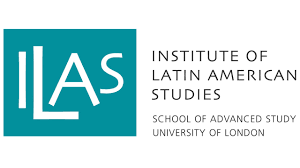

Populism in Latin America and Beyond
Thu, 18 Mar 2021 - Fri, 19 Mar 2021
Online
Organized by: Institute of Latin American Studies
Contact: olga.jimenesz@sas.ac.uk
With contributions from Steve Levitsky, Professor of Government, Harvard, and Francisco Panizza, Professor of Latin American Comparative Politics, LSE
Recent political events in the US and Europe have focussed scholarly debate on the nature of populism and its relationship to democracy. In the context of Latin America the concept has a long history. Associated with economic nationalism and the co-optation of particular classes from the early twentieth century, from the 1990s a neo-liberal form of populism emerged in Latin America. With the diversity of ‘populisms’ identified, the conference seeks to examine whether the term continues to have any validity and what relationship(s) it has to democracy. Possible topics include but are not restricted to the following:
- How can populism (and neo-populism) be defined?
- Given the diverse character of populism in Latin America and other places, is the concept still helpful?
- Is it possible to identify different types of populism in terms of periods both for individual countries or the region as a whole?
- What explains the emergence of populist leaders and why have some been more successful than others?
- Is populism a democratic force?
- How is it related to class and race/ethnicity, as well as gender and age?
- To what extent is populism related to specific country conditions or a reflection of wider regional or global developments?
- Does the populist critique of “globalism” contain a coherent argument about the limitations of neoliberal globalization?
- To what extent has populism benefited from the growth of social media tools and platforms such as Google, Facebook, Twitter, WhatsApp and Instagram?
- Has the coronavirus pandemic given new opportunities to populists or instead exposed their limitations?
The conference seeks to address these questions among others, by exploring the experience of individual countries/leaders, but also drawing out comparisons between countries and over time.
Convenors Anthony Pereira (Brazil Institute, KCL) and Linda Newson (Institute of Latin American Studies). Abstracts of approximately 250 words should be emailed to Anthony Pereira at anthony.pereira@kcl.ac.uk by December 4, 2020.











